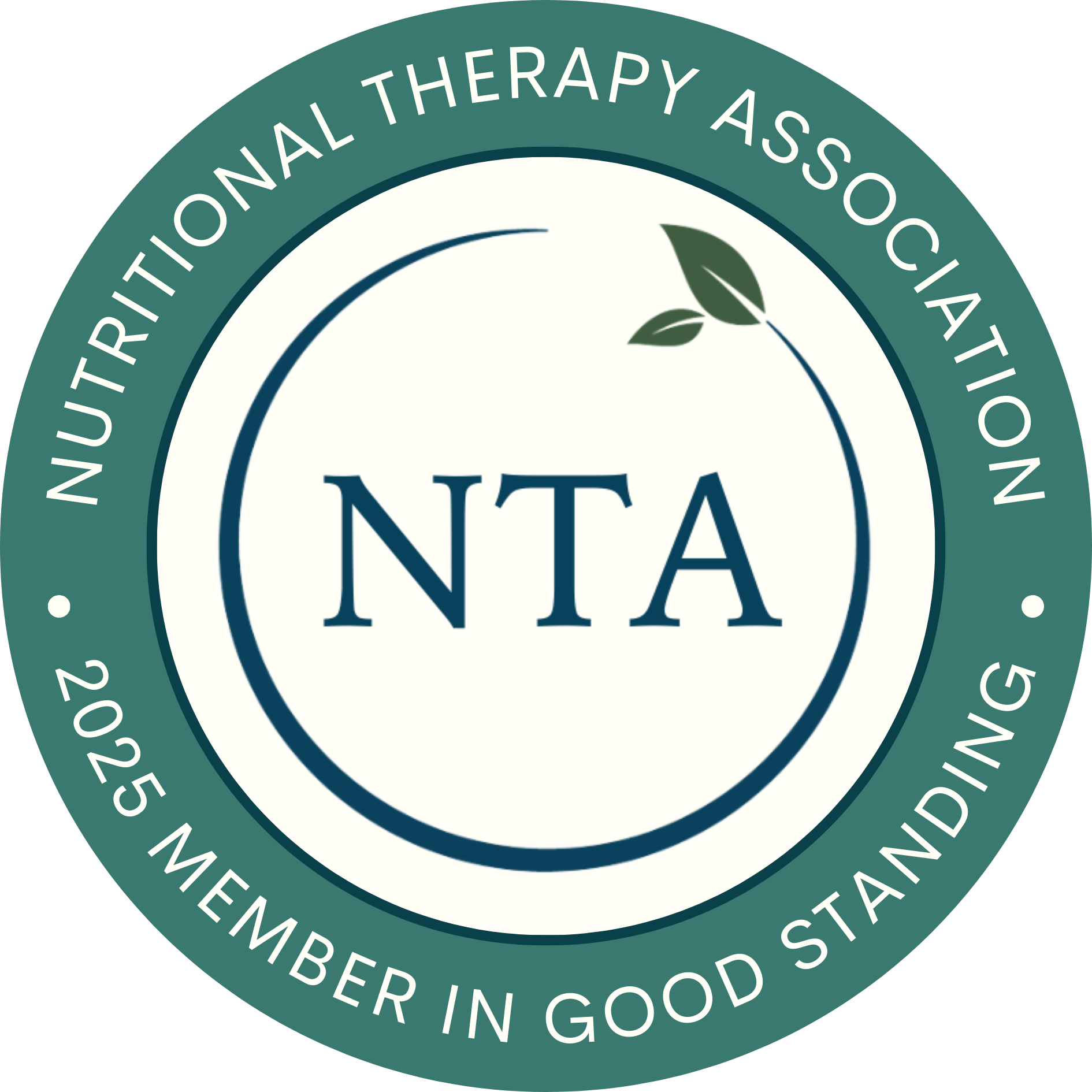Hydration Tip #3: Add electrolytes (appropriately)

Foundation: Nutrient-dense diet – building blocks (hydration)
Please note that while these lifestyle tips are intended to support your hydration, please remember, holistic nutrition is not a substitute for medical advice or for your family physician or other appropriate healthcare provider. If you suffer from a medical or pathological condition, you need to consult with an appropriate healthcare provider. A Registered Holistic Nutrition Practitioner is not trained nor licensed to diagnose or treat pathological conditions, illnesses, injuries, or diseases or prescribe medications.
Every individual is different and your unique needs and bio-individually should always be honoured.
Please disregard, if they are not appropriate for you.
Remember to join me on Thursday February 27 at 6:30 pm for a live webinar to explore this topic!
Live webinar link: https://meet.jit.si/moderated/cbced18fdf95c25a454d13a0271f5ffb1e2e08661e05f586874178b6c20745e9
The webinar will take place on the Jitsi webconferencing platform.
No special account set up is needed, simply click the link to join on your favourite web browser.
Have you ever come across a food or product that fills such a void for you, that it makes you say, “<food/product>, where have you been all my life?”
That’s how I personally feel about electrolytes.
For me, electrolytes have significantly improved my:
- mental focus and stamina
- physical stamina and energy
- digestion
- joint flexibility
- muscle cramping (I used to get those excruciating 4 in the morning calf cramps, which are just the worst, so not having to contend with them anymore is wonderful)
I shared with you that I used to drink water all day long in accordance with when I was thirsty – which was often.
What I didn’t share, was that my water was just plain, i.e., nothing added to it, and this, I believe was my mistake.
If you have ever heard people say that it’s possible to drink gallons of water in a day, and still be dehydrated and think it sounds silly, may I clarify that it is actually true.
Electrolytes give us a way of literally “holding” our water, ensuring that it gets to where it needs to go and serves the body in the way it is intended.
Every time we urinate, we are losing both fluids and electrolytes, so unless we are replacing both, it is like only making withdrawals from our mineral bank account.
Remember, water and electrolytes are foundational to health.
Electrolytes are not just for athletes, hot summer days, or when you sweat a lot (although they are crucial in these scenarios, too). They are for everyone, everyday.
As we reflect on the tips I have shared so far on Hydration, you can see the natural progression we are taking, right?
- In Hydration Tip #1, I reminded you to first filter your water (starting with a clean source)
- In Hydration Tip #2, we talked about drinking enough water, from a volume perspective, for your body weight and bio-individual needs, and I alerted you to some areas that might increase your need (such as diuretic beverages and stress)
- And, now, in Hydration Tip #3, we are adding in the ever essential electrolytes, which is really the icing on the cake, so to speak, and giving your body a way to effectively hold your water and put their properties to work
The electrolytes – a quick review
Let’s quickly review what the key electrolytes are and how they serve the body:
Calcium–works with magnesium to create muscle movement and nerve impulses; plays an important role in maintaining pH levels in the body by buffering acidity
Magnesium–works with calcium to create muscle movement and nerve impulses; is a necessary ingredient in creating cellular energy, and for hundreds of reactions within the body to occur
Sodium–helps to keep fluid comfortably in what is called our “extracellular matrix”, which is the fluid that surrounds our cells, so they are fluid and agile (and don’t clump together and become “sticky”, which can happen when we are dehydrated), works with potassium to maintain blood pressure
Potassium–works with sodium to maintain a fluid balance inside and outside of the cell and maintain blood pressure; it helps transport vital hormones into cells (like our thyroid hormones)
Chloride–it is a key ingredient of stomach acid and works along with the other electrolytes to maintain fluid balance, create muscle and nerve movement/transmission, and maintain proper pH (1)
Even if you want to forget these details and just step back and behold the big picture – here is the key takeaway:
Electrolytes represent this small group of powerful minerals (and you can see some heavy hitters in that list) that carry an electrical charge when dissolved in water.
Because we are mostly water, their electrical properties literally energizes our body, giving it the electricity and energy it needs to do its work.
I think you might agree, this is a huge opportunity for our health.
An important word about bio-individuality
Like so many aspects of health, there is always the important element of bio-individuality to be carefully observed, and this is especially true when it comes to electrolytes.
Our kidneys carry the key duty of maintaining an appropriate electrolyte balance in our bodies (along with our adrenals, which sit right on top of the kidneys), filtering out some of our fluids and electrolytes, but also retaining and recycling some for future use or balancing the body.
With this in mind, those with medical conditions that impact the kidneys and/or blood pressure, or are taking medications that are diuretic in nature (cause the body to lose fluids and electrolytes), very great care is needed before introducing electrolytes into your lifestyle, even on a nutritional level.
Always talk with your health care provider to better understand how your medical condition and any medications you are taking may impact your body’s hydration and electrolyte balance.
Or, work with me 1:1 so I can support you nutritionally with the appropriate introduction of hydration and electrolytes that will suit your bio-individual needs.
Easy ways to add electrolytes to your water
As you know, I’m a lover of simplicity.
With that, I’ll share with you some easy ways that you can bring some electrolytes into your daily water:
Squeeze of lemon
- Add a 1/4 slice of lemon to 4 cups of water
- That’s it!
This is a great starting point in making the process of drinking water more enjoyable. Drinking it through a straw will help protect your tooth enamel.
If you are safe to do so, you could proceed with the next step:
- Add a pinch of sea salt or Himalayan salt (these are rich in trace minerals, including the electrolytes, and are an easy way to enrich your lemon water and cuts some of the acidity as well).
If you are safe to do so, you could also add:
- 1/2 – 1 tsp of raw honey (Manuka is my favourite, not only for the taste, but it is also beneficial to your oral microbiome. (2). Raw/unpasteurized honey is a great source of minerals and adds a gentle sweetness to your lemon water, which you may appreciate. You can certainly add both the pinch of salt and the honey, but experiment a little and see what works for you).
Seasonal shake-up: vegetable broth for winter
Full disclaimer, I have tried “sipping” veggie (and/or bone) broths as a source of water throughout the day and it’s just gross, so I wouldn’t recommend it!
That said, vegetable (and bone broths) are a fantastic source of minerals and electrolytes, and particularly nourishing to our bodies during the winter months, but they really are best suited as a small appetizer before your meal, or as your main meal (remember my French style of eating).
Here are the easy proportions to make your own vegetable broth:
- 4 cups vegetables (use a mixture that includes sulphur rich vegetables like onions, garlic, shallots, or a bit of ginger for warmth, winter vegetables like root vegetables, celery, carrots, cabbage, and winter greens)
- Gently sauté the vegetables in 1-2 tbsp of animal fats (like grass-fed butter, ghee, duck fat, or tallow) until they are just a little tender, and 1 tsp of sea or Himalayan salt and 1/8 tsp pepper (or other herbs you enjoy)
- 8 - 10 cups of water – bring to a boil, then reduce to low and let simmer until desired tenderness and concentration
- That’s it!
- Keep it veggie to have as a small appetizer, or add some protein (chicken, beef, fish, etc.) to make it a meal
Seasonal shake-up: bone broths for winter
Here is an easy bone broth process and proportions you can try out:
- 2 – 3 pounds of bones (chicken or beef)
Tip– I freeze the bones from the roast chickens I buy! Once I have a large Ziploc’s worth saved up, I make my batch of bone broth
- Put them into a 4 Quart Slow Cooker and fill the water up until the bones are basically covered (make sure the lid can close, but it will come very close to the top. Not to worry, the height settles down as it begins to cook)
- Add 1 tsp of sea or Himalayan salt and 1 tbsp of apple cider vinegar
- Turn the Slow Cooker on High and keep the lid tipped at all times
- Let the bones cook for 2 – 3 days, re-filling the water as the level goes down, keeping it around 1 inch from the top (don’t worry, overnight the level will drop quite low as you are sleeping, which is fine. Just re-fill it in the morning, give it a stir, and keep the process going)
- As the days progress, you can add any vegetables you like to offer some flavour – after the first day, I just throw in some onions and garlic (no special measurement, just whatever I have laying around), and after the second day, I might add some celery and carrots. I may also add some fresh or dried herbs like rosemary or oregano. A sprig or two, or 1/2 – 1 tsp dried)
- Harvest the broth by removing the bones using a soup ladle and a strainer (I try to time my broths close to organics day on the garbage schedule! The broth is beautiful, but you don’t want to smell those leftover bones for too long)
Seasonal shake-up: infused fruit water for summer
During the summer months, you can definitely shake things up and try out some infused fruit combinations.
The sky is the limit on your creativity, but as you know, I advocate for eating locally and seasonally, so you can pinpoint the seasonal fruits you love, and try following this process and proportions:
- 1/2 cup fruit of your choice (such as cucumber, lime, strawberries, blueberries, raspberries, cherries, peaches, apples, pears, and grapes, or a mixture)
- Dash of herbs (mint, basil, and rosemary are good ones)
- 4 cups of water
- Let it sit overnight in the fridge and drink strained
You can also double the proportion to 1 cup fruit to 8 cups of water and a handful of herbs, if you’d like for it to carry you all day.
Products I use and like:
Truth be told, I had a bit of a bumpy ride finding a good electrolyte product on the market, which is why I ended up using lemon water, salt, and honey for quite some time.
Luckily, I have finally found 2 electrolyte products that I adore and that have good chemistry with my body.
Remember, everyone is different, but they have worked well for me and I alternate between them.
I appreciate that they are clean and simple in their composition and last a long time for their price point, which is an added plus:
Final thoughts
Your hydration can either be a channel whereby you are constantly making withdrawals from your mineral bank account (in the case of drinking plain water or too many diuretic beverages, etc.), or it can be a channel whereby you are making deposits and adding to your body’s electricity, energy, and therefore optimal function.
For me, I experienced many significant gains in my health by adding electrolytes to my daily hydration, with my mental focus and stamina being one of the greatest gains.
In the world of work, where we rely so heavily on our mental fortitude to push through volume, intensity, details, and long hours it has allowed me to arrive at the end of my day feeling proud of what I've tackled, enough steam left for my evening, and a restful sleep that powers me to do it all over again!
Yes, you do have to attune to your personal nuances and needs, but in doing so, the gains are wonderful!
References & Further Reading
- Medical News Today (Dec 9, 2024). What are electrolytes and what do they do? https://www.medicalnewstoday.com/articles/153188#about-electrolytes
- Health Line (Oct 25, 2024). 6 Benefits of Manuka Honey, Based on Science. https://www.healthline.com/nutrition/manuka-honey-uses-benefits#wound-healing
- BodyBio e-lyte: https://bodybio.com/products/e-lyte-balanced-electrolyte-concentrate
- Trace Minerals ConcenTrace: Stay Balanced With Trace Mineral Drops - Trace Minerals



